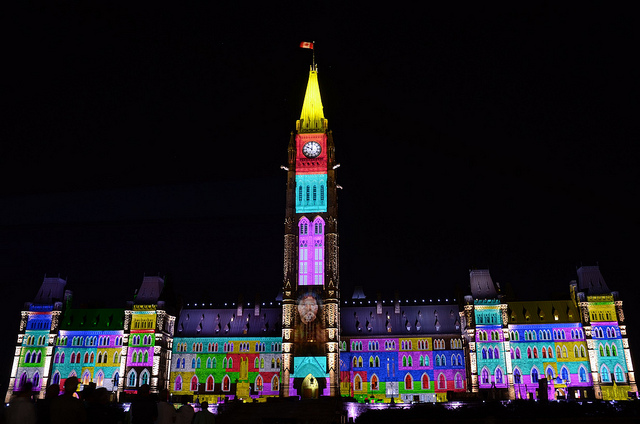Separating fact from fiction, true from false, reality from fantasy is something people do routinely, and that journalists do for a living. What readers recognize as news is an untruth discovered, or a truth revealed. Reporters do the work.
Other professionals work within the same frame or reference, looking for good evidence, and discarding the bad. Doctors, engineers, scientists and other academics all want to get to the same place: a clear, precise picture of what is going on. Understanding the world requires testing for true or false — within a larger picture of what constitutes reality.
In the postwar world it was understood that governments needed to protect the public interest through playing a leading role in promoting growth.
Against this view, American public choice theory argued the state was badly miscast. No government was benevolent despot and omnipotent regulator. Instead, states were self-seeking, meddling, too inefficient, and in need of shrinking.
Academic narratives often serve to explain the latest events. Stephen Harper wrote his MA thesis using public choice theory to discredit Keynesian counter-cyclical policy. Public choice economics helped enshrine myths that have dominated public policy since Reagan and Thatcher.
Like American Republicans, the Harper government pushed the counter-revolutionary view that governments routinely failed, while freer markets made things better. The need for deficit spending was reluctantly adopted by the Conservatives in 2008, and too quickly abandoned, with the results we are now witnessing: slowed growth in employment and a rough outlook for manufacturing.
Commitments to minimalist government and austerity policies led University of California economist Bradford DeLong to conclude the world is witnessing a second Great Depression.
Despite the gloomy economic outlook, the looming public policy issue of our times goes well beyond public choice state minimalism versus Keynesian interventionism as the way to restart the economy. With the exception of orthodox economists, most social scientists are beginning to grasp the importance of stopping “the economy” from destroying the environment.
From the soft “sustainable development” option to various zero-growth steady state approaches, and more root and branch critiques, thinkers are exploring the implications of scientific discoveries about climate change, and debating what to do about energy and transportation in an effort to protect the atmosphere.
In the political world, lots of stories are put out to fool the unwary. Making money, authority, and prestige prevail is what turns public relations machines. Political communications outfits swing into action to manage the news every time upsets occur. Lately they have been working overtime. Burning train rolls into Lac-Mégantic killing people and destroying the downtown. It is not easy to hide the effects of deregulation, cuts to public services, and the abandonment of tried and true security measures. Best efforts to make public policy concerns disappear behind expressions of sympathy for the victims families (only normal), and promises to make things right, cannot withstand good science or astute journalism.
Researchers want to know what happened so that inferior equipment, running on insecure rail beds, with inadequate personnel in charge, got the right to carry too much inflammable material over great distance without proper public supervision from the federal government, the responsible authority? It will be hard to disprove market failure occurred in era of public choice-inspired minimalist government.
Floods hit Calgary. How did it happen that builders were allowed to construct housing properties on flood lands? Why were the alarms raised by experts from the University of Calgary following the floods of 2005 ignored? The population has the right to answers.
Climate change specialists say increased likelihood of heavy rains is the most significant risk to result from a buildup of carbon dioxide gases in the atmosphere. In other words, climate change happened to Toronto, despite assurances from Conservative politicians.
Canadians are witnessing political failure on a massive scale. Separating fantasy from reality requires going well beyond explanations of government shortcomings identified by public choice theory.
The problems Canadians face are of the type revealed since ancient times: the class in charge has corrupted the political process. The people that own the country, run it; and they are doing alright for themselves, but the consequences are disastrous for the citizenry.
Would the same Calgary developers meeting at the Manning Institute to plot the overthrow of Mayor Nenshi have had anything to do with profitable operations building homes on dangerous lands? Did the U.S.-based corporate raider who put together the Montreal, Maine, and Atlantic Railway Ltd. pay the same attention to public safety and security as the former Canadian National Railways, now privatized?
Looking at the emerging environmental stories with the ancient political theory developed by Aristotle — how the dominant class abuses its power — illuminates much of what needs to be brought to light about political failure in Canada.
Duncan Cameron is the president of rabble.ca and writes a weekly column on politics and current affairs.
Photo: Jamie McCaffrey/flickr



